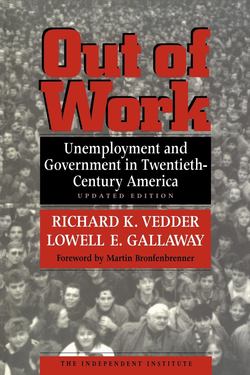Читать книгу Out of Work - Richard K Vedder - Страница 22
На сайте Литреса книга снята с продажи.
AUSTRIAN PERSPECTIVES ON UNEMPLOYMENT
ОглавлениеNo school of economic thought has placed a greater emphasis on the importance of markets in coordinating economic activity than the Austrian school. With respect to unemployment, Austrians accept the view that unemployment reflects discoordination and disequilibrium in the labor market, or, more simply, excessive wage levels.9 As the late Friedrich von Hayek put it, “The cause of unemployment … is a deviation from the equilibrium prices and wages which would establish themselves with a free market and stable money.”10 Recently, scholars have supported this view empirically.11
Recognizing that, however, the Austrians generally believe that the disequilibrium in the labor market often may be a by-product or consequence of human-caused disturbances in other markets. In particular, increases in the stock of money induced by monetary policies of the central bank (Federal Reserve Bank in the United States) change the purchasing power of the circulating medium. Such a move tends to push interest rates in a downward direction not justified by true human time preferences. The price of capital resources falls relative to the price of labor services. This, in turn, leads to a distortion in resource allocation toward capital-intensive ventures and away from labor-intensive ones.
